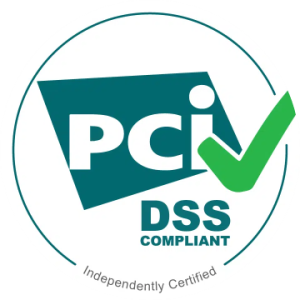

In today’s digital-first world, businesses are constantly seeking ways to enhance their online presence. For companies that have outgrown shared hosting but aren’t ready for the high cost of a dedicated server, Virtual Private Servers (VPS) provide an ideal middle ground. In this article, we will explore why VPS hosting is a game-changer for growing businesses, the key benefits it offers, and how to choose the right VPS hosting plan for your needs.
What is VPS Hosting?
A Virtual Private Server (VPS) is a virtualized hosting environment that mimics a dedicated server within a shared hosting infrastructure. Each VPS operates independently, with its own operating system, dedicated resources (RAM, CPU, storage), and full root access. This provides greater control and flexibility compared to traditional shared hosting, where multiple websites share the same resources, often resulting in slower performance.
With VPS hosting, businesses enjoy the best of both worlds—the cost-effectiveness of shared hosting combined with the power, control, and privacy of a dedicated server.
Key Benefits of VPS Hosting
- Enhanced Performance One of the primary reasons businesses upgrade to a VPS is performance. Since you’re not sharing resources with other websites, your website will load faster, handle more traffic, and offer a smoother experience to visitors. This is especially crucial for e-commerce websites and businesses with heavy traffic, where downtime or slow load times can lead to lost sales and poor SEO rankings.
- Scalability As your business grows, your hosting needs will change. VPS hosting offers the flexibility to scale your resources up or down based on demand. Whether you’re launching a new product, expecting a surge in traffic, or needing more storage, you can easily adjust your VPS plan without downtime or migration headaches.
- Full Root Access With full root access, you have complete control over your server environment. This level of access allows for custom software installations, specific security settings, and the ability to manage files and databases as you see fit. Developers, in particular, appreciate the flexibility of VPS hosting for deploying custom apps, managing frameworks, and optimizing server performance.
- Cost-Effective Solution VPS hosting is more affordable than a dedicated server while offering a similar level of control and performance. For businesses that require more power than shared hosting can provide, but aren’t ready to invest in dedicated hosting, VPS is an ideal compromise. You only pay for the resources you need, making it a budget-friendly option for growing businesses.
- Improved Security VPS hosting offers a higher level of security compared to shared hosting. With your own isolated environment, there’s less risk of being affected by other websites’ vulnerabilities or security breaches. Additionally, you can implement your security protocols, install SSL certificates, and configure firewalls to protect sensitive data.
- Better SEO Rankings Google and other search engines consider page load speed a ranking factor. With VPS hosting’s enhanced performance and uptime, your website will likely rank higher in search engine results pages (SERPs). Additionally, a fast-loading website improves user experience, reducing bounce rates and increasing conversion rates—both of which contribute to better SEO.
Common Use Cases for VPS Hosting
While VPS hosting can benefit almost any business, certain use cases stand out:
- E-commerce Stores: Online stores need consistent uptime, fast load speeds, and robust security to handle transactions and sensitive customer data.
- High-Traffic Websites: If your website attracts a large volume of daily visitors, VPS ensures you have the resources to manage traffic spikes without compromising performance.
- Web Applications: For businesses developing or hosting web apps, VPS hosting provides the power and flexibility needed for complex setups.
- Agencies & Developers: Web development agencies and freelancers benefit from VPS hosting’s flexibility, offering the ability to test and launch multiple projects without server restrictions.
How to Choose the Right VPS Hosting Plan
When choosing a VPS hosting provider, it’s essential to consider the following factors:
- Resource Allocation
- Assess how much CPU power, RAM, and storage you’ll need to handle your current website traffic and potential growth. Many hosting providers allow you to easily scale resources, but it’s still crucial to pick a plan that meets your immediate needs.
- Operating System Options
- VPS servers often allow you to choose between different operating systems, such as Linux or Windows. Consider the needs of your software stack or web application when selecting the operating system.
- Managed vs. Unmanaged VPS
- A managed VPS hosting service means the provider will handle most technical aspects, including updates, security patches, and server monitoring. This is ideal for businesses that don’t have an in-house IT team. Conversely, unmanaged VPS is a cheaper option but requires technical expertise to manage the server yourself.
- Customer Support
- Look for a hosting provider that offers 24/7 customer support to assist you with any issues that may arise. Reliable support can be a lifesaver when facing unexpected challenges.
- Location of Data Centers
- The physical location of your hosting provider’s data centers can impact your website’s performance, especially for international businesses. Choose a provider with data centers near your target audience for optimal speed and performance.
Conclusion: Is VPS Hosting Right for You?
For growing businesses, VPS hosting is an excellent choice. It bridges the gap between affordable shared hosting and high-powered dedicated servers, offering a scalable, secure, and customizable environment for your website. Whether you’re running an e-commerce store, a content-rich website, or web applications, VPS can provide the resources and performance you need to stay competitive in today’s digital landscape.
With the right VPS hosting plan, your business will be better equipped to handle increased traffic, enhance security, and improve overall site performance—all while maintaining an optimal SEO ranking.
Frequently Asked Questions
- How does VPS differ from cloud hosting?
VPS and cloud hosting both offer scalable resources and flexibility, but the key difference is infrastructure. VPS runs on a single physical server, whereas cloud hosting pulls resources from multiple servers. This makes cloud hosting more scalable but typically more expensive.
- Can I upgrade my VPS hosting plan as my business grows?
Yes, one of the major benefits of VPS hosting is its scalability. Most providers allow you to upgrade or downgrade your plan without downtime.
- Is VPS hosting suitable for beginners?
If you’re new to server management, opting for a managed VPS can be an excellent way to enjoy the benefits of VPS hosting without dealing with technical challenges. By optimizing this article with the right keywords like “VPS hosting”, “best VPS for businesses”, “scalable hosting solutions”, and “virtual private server benefits”, this article can help attract organic traffic to your website, positioning your business as an authority in the hosting industry.








